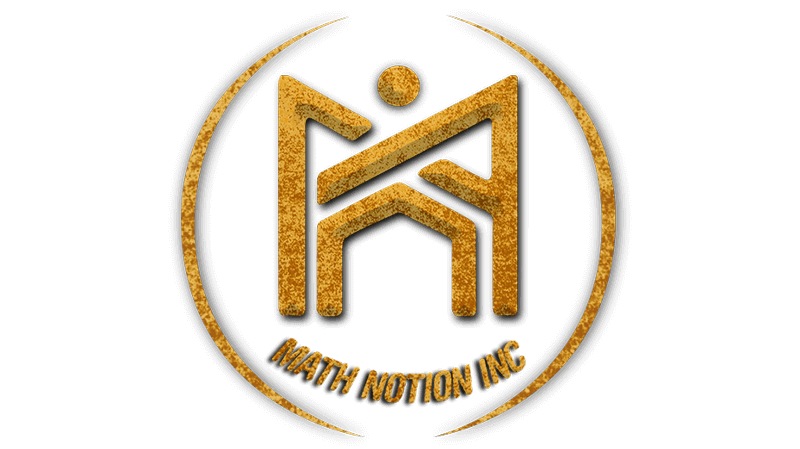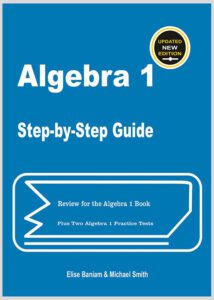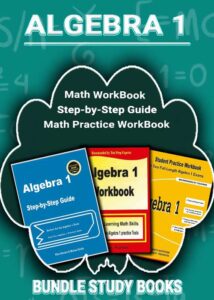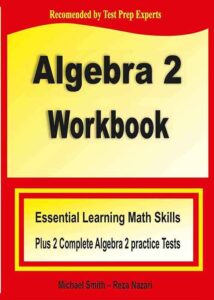
Study Time: 2minutes
How to Study Algebra A step by step guide
Introduction:
Algebra can be a challenging subject for many students, but with the right approach to study and learning, it becomes more manageable. One of the essential tools for mastering algebra is an algebra textbook. In this article, we provide you with a step-by-step guide on how to read algebra effectively, make the most of your study sessions, and improve your understanding of the subject.
1. Know the table of contents:
Before diving into the content, take a few minutes to review the table of contents. This will give you an overview of the topics covered in the book and help you understand its structure.
2. Read the preface and introduction:
Prefaces and introductions often provide valuable information about the author’s approach to teaching algebra, the goals of the book, and any special features. Understanding the purpose of the book can help you align your expectations.
3. Gather the necessary items:
Make sure you have all the supplies you need, such as notepads, pens/pencils, and calculators. Having these items ready will make your study sessions more productive.
4. Start with the basics:
If you’re new to algebra or need a refresher, start with the basics. Read sections that cover basic algebra concepts such as variables, equations, and expressions. Take notes and work with the examples provided.
5. Highlight key concepts and formulas:
As you read, use highlighters or sticky notes to mark key concepts, important definitions, and essential formulas. This makes it easier to browse and find important information in the future.
6. Work with an example:
Algebra books usually provide numerous examples to illustrate concepts. Make sure you go through these examples step by step and don’t move on until you understand each one. Practice is essential to mastering algebra. You can use our Algebra Workbook to review numerous examples and consolidate learning.
7. Solving practice problems:
Most algebra books include practice problems at the end of each section or chapter. Use these problems to test your understanding and reinforce what you’ve learned. If you get stuck, refer to the examples and explanations in the book.
8. Take notes:
Summarize key points and techniques in your own words as you read. This will help you internalize the material and serve as a valuable reference when you need to review it.
9. Using online resources:
In addition to your textbook, use online resources such as video tutorials, interactive quizzes, and forums to supplement your learning. Sometimes a different explanation or perspective can help clarify difficult concepts.
10. Review regularly:
Algebra is a subject that is based on previous concepts. Review what you’ve learned regularly to reinforce your understanding and make sure you don’t forget important principles.
11. Seek help if needed:
If you encounter challenging topics or concepts that you cannot understand, do not hesitate to ask your teacher, tutor, or classmate for help. Algebra is a cumulative subject, and solving problems quickly is essential.
Conclusion:
Reading an algebra book effectively involves a structured approach that includes careful reading, note-taking, practice, and regular review. By following these steps, you can get the most out of your algebra textbook, improve your understanding of the subject, and excel in your algebra studies. Remember that persistence and practice are the keys to success in algebra.
FAQs
- How do I choose the right algebra textbook?
- Answer: Look for one that aligns with your learning style and has clear explanations and plenty of practice problems.
- Is it essential to take notes while reading an algebra textbook?
- Answer: Yes, taking notes helps reinforce your understanding and serves as a valuable reference.
- Can online resources replace a physical algebra textbook?
- Answer: Online resources can supplement your learning but are not a complete replacement for a textbook.
- How often should I review previously learned algebra concepts?
- Answer: Regular review is crucial to maintain and deepen your understanding of algebra.
- What if I find algebra too difficult to understand?
- Answer: Seek help from a teacher, tutor, or classmate; algebra is a subject that often requires guidance and practice.




